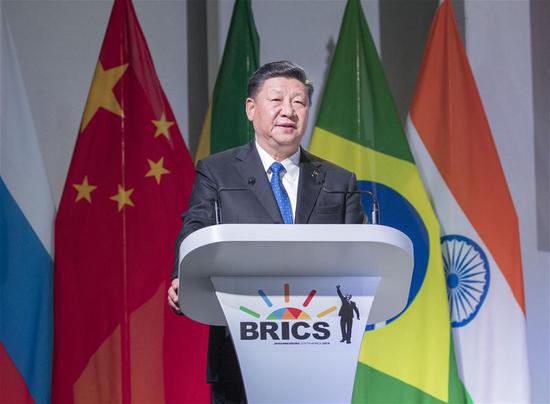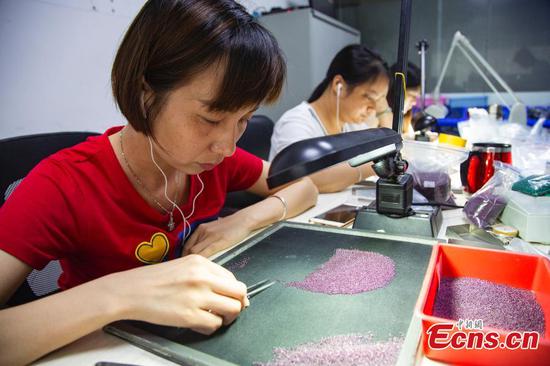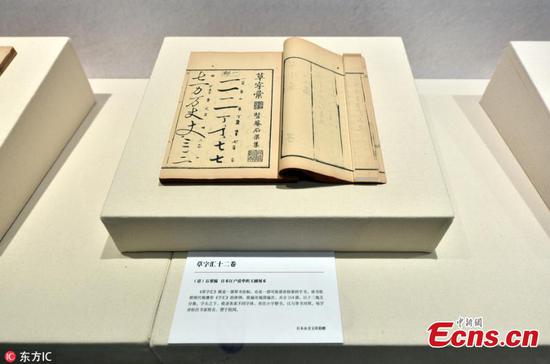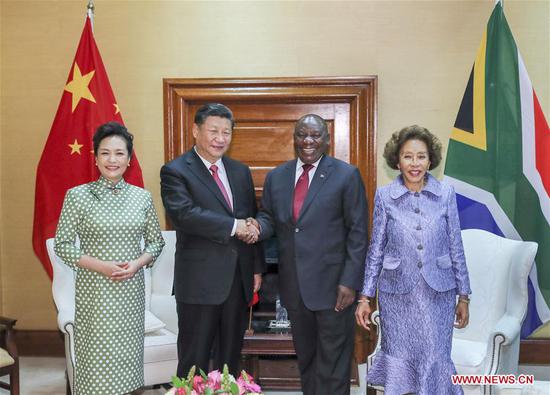End of Qualcomm-NXP deal unrelated to China-U.S. trade dispute, anti-monopoly moves needed
The termination of a deal between leading chipmaker Qualcomm and semiconductor manufacturer NXP is a matter of antitrust regulation and has nothing to do with China-U.S. economic and trade relations, the Ministry of Commerce (MOFCOM) said Thursday.
China is likely to show growing scrutiny toward market deals to ensure fair play, and this trend has nothing to do with the China-U.S. relationship, analysts said.
MOFCOM spokesman Gao Feng made the comments at a regular press briefing, after Qualcomm Inc announced plans to terminate its $44 billion acquisition bid for Dutch firm NXP Semiconductors on Thursday after the U.S.-based firm failed to meet its own deadline of 12:00 p.m. Beijing time.
Although China's antitrust authorities were reportedly in the advanced stages of the approval process for Qualcomm's bid, no outcome had been reached as of the company's deadline.
This means the world's largest chipmaker for mobile phones will now activate its plan to withdraw from the NXP deal, which dates back to 2016, and pay a breakup fee of up to $2 billion.
Bai Ming, deputy director of the International Market Research Institute under the Ministry of Commerce, said that the case should be seen as a separate issue from the ongoing trade row between China and the U.S., in which China has been forced to impose retaliatory tariffs on U.S. imports after the latter first slapped massive tariffs on Chinese goods.
"As the initiator, Qualcomm is obliged to provide enough materials to persuade regulators that its proposed merger will not cause market centralization toward monopoly," Bai said, noting that the process has to be repeated until the regulator is completely convinced. "There is nothing abnormal."
"The falling apart of the deal is good news for domestic industries that make or use chips, as the situation could have prevented a scenario in which the chips for PCs, mobile phones and Smart Internet-connected devices were all held in the hands of an American company," Xiang Ligang, chief executive of telecom industry news site cctime.com, told the Global Times on Thursday.
While China ramps up efforts to develop homegrown chips, it is best if chips for Smart Internet-connected devices, including low-level applications such as lamps, TVs and cars, remain decentralized, Xiang said. Market demand for such chips will be 10 times that of mobile phones, according to Xiang.
However, the development of the Qualcomm-NXP deal also drew concerns. China kept Qualcomm well informed as it conducted antitrust probes into the company's acquisition bid for NXP, Chinese Foreign Ministry spokesman Geng Shuang said on Thursday, refuting allegations of a lack of transparency over the deal's approval process.
"In fact, the moves by Chinese regulators to prevent centralization or monopolistic practices are at the core of measures to ensure market fairness, which foreign companies doing business in China greatly desire," Bai told the Global Times on Thursday.
"What's important is that the approval process moves at the pace of [Chinese anti-monopoly] law, rather than at the pace of companies' schedules," said Chen Danzhou, an assistant professor at the University of International Business and Economics in Beijing.
"In due time, more disclosures will be made to quash any doubts or suspicions about a lack of transparency," Chen told the Global Times on Thursday.
"The aim of antitrust review is to ensure consumer rights and ensure an open, fair and free market. Market moves [such as the acquisition bid] in line with this aim will receive increasingly open regulation by regulators, while those against it will face growing scrutiny," Chen said.
Xiang said the fallout of the deal is a major loss for Qualcomm, as an acquisition with NXP could have provided a significant boost to the company's business in the coming age of fifth generation (5G) telecommunications technology and the Internet of Things, areas in which the demand for chips has grown exponentially.


















































